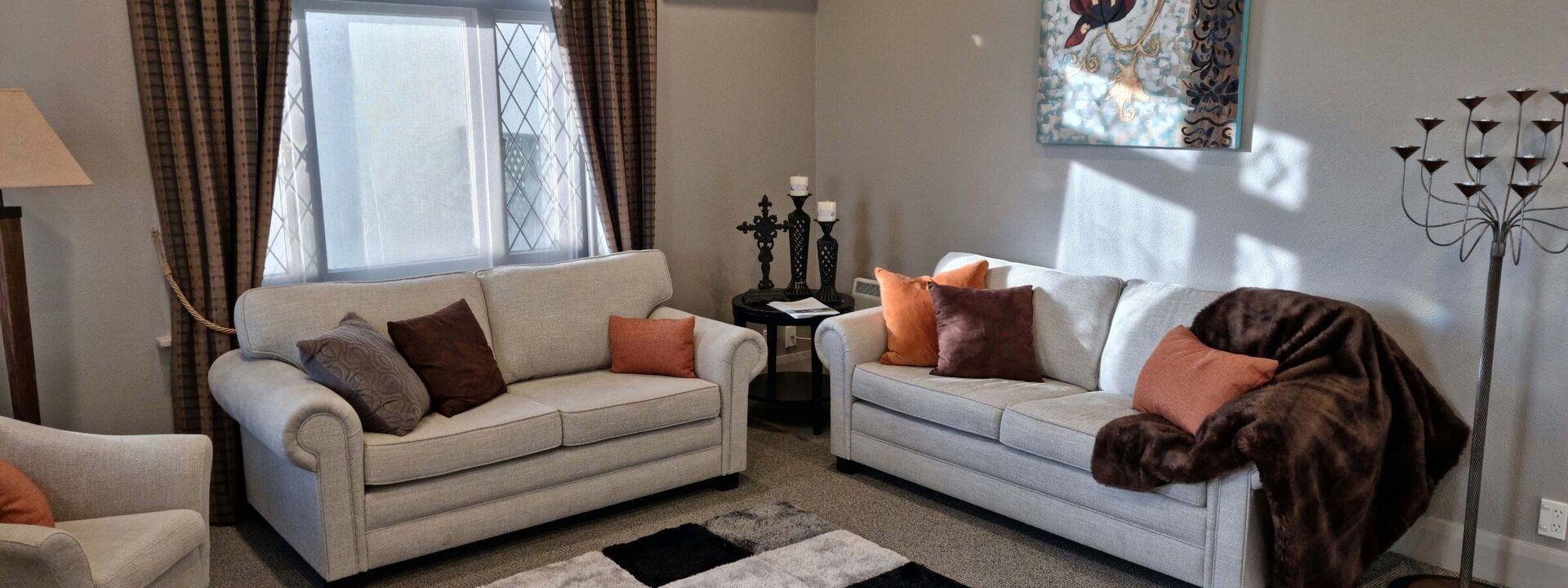WHERE TO START...
When someone you love dies, even when it is expected, you may feel shock, disbelief, numbness – or your sense of loss and grief may be immediate. Everyone responds in their own way, and there are services available to help you cope, particularly once the funeral is over and ‘normal’ life has resumed.
However, immediately following a death, there are practical steps that must be taken, and this is where we can provide you with help, guiding you through the necessary initial stages during an extremely difficult time. The following is a step-by-step plan to take you from the time the death occurs, until we meet with you.
Of all the suggestions we make, the most important thing to remember is that help is only a phone call away: we have people available 24 hours a day, seven days a week to respond to your needs and guide you through the funeral process. The number to call is ROTORUA 07 347 0069.
Step One: Phone Collingwood Funeral Home on 07 347 0069
It's amazing how much difference one call can make. First, we'll answer any questions you may have. Then we'll make a plan together about how to proceed from this point. This will include organising things such as setting a time and place to meet with you and those to be involved in making the funeral arrangements and organising the transfer from the place where the death has occurred.
Step Two: Contact the next of kin and family
Being with those closest to you following a death provides a valuable support network. It is also helpful in deciding when everyone who will be involved in making the funeral arrangements can get together (especially important when different family members are out of town, or immediately unavailable).
Step Three: Contact the family doctor or attending physician to advise of the death
The doctor is responsible for issuing documentation required before a cremation or burial can take place. In the course of arranging the funeral, we will obtain these documents for you. In some situations the doctor is unable to issue these forms and the Coroner will need to be involved. If the death has occurred in a hospital or nursing home the duty nurse or other staff member will often do this task for you.
Before we meet with you
During the initial contact with a family, we are often asked what do I need to do now. While the short answer is nothing really, there are some practical matters you may like to start attending to i.e.
Locate registration information
We will need information from you to register the death with Births, Deaths and Marriages, so it can be useful if you have the person’s marriage and/or birth certificates with you when we meet.
Start thinking about the funeral
We will ask you to make a number of decisions in a short space of time when arranging the funeral - all at a time when you are stressed and fragile. Apart from a few legal requirements there are no real rules for funerals, and a lot of what happens depends on personal choice.
It is often easier if you have thought about matters such as:
- Where and when will the service be?
- The type of service - public or private, traditional or contemporary?
- Will there be refreshments?
- Who will officiate - celebrant or minister?
- Does anyone wish to view?
- Does anyone have any special requests?
Activities like finding clothing for dressing the deceased, or photographs for service sheets or DVD tributes, or starting to word a notice for the newspaper could also be started before we arrive, if you feel up to it. These tasks can also be easily delegated to those wanting to help, but not knowing how.
Check the will
This may contain final instructions regarding the funeral. You might also advise the solicitor or executor of the death if you have not already done so.
Look after yourself and your family - it's important
With any of the suggestions we have made, only do what you feel you can cope with. We are here to take care of everything for you, and will step you through and support you in everything to do with the funeral.

